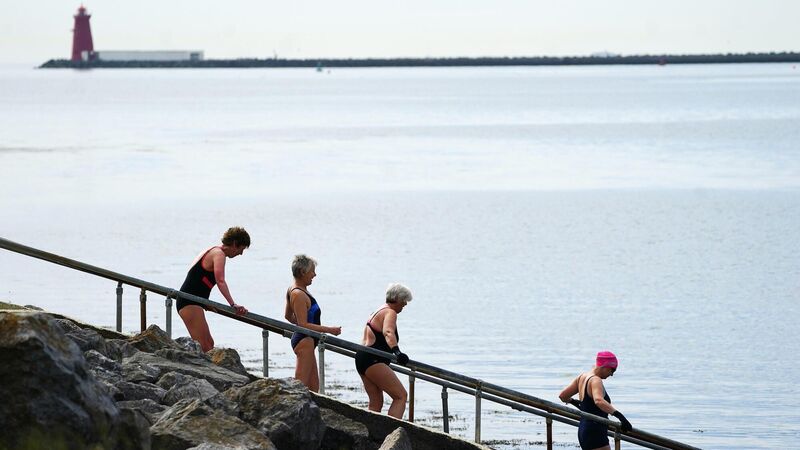Heatwaves to become more frequent, longer and hotter due to climate change

Women going for a swim on Bull Wall in Dublin today. Photo: Brian Lawless/PA
Heatwaves like the one engulfing parts of Europe and the US will start earlier, become more frequent, and will be longer and hotter because of climate change, the World Meteorological Organisation (WMO) has warned.
The likes of Spain and France are experiencing intense heat in patterns rarely seen this early in the year, while nearly a third of the American population is under some form of heat advisory, it said.
CLIMATE & SUSTAINABILITY HUB













